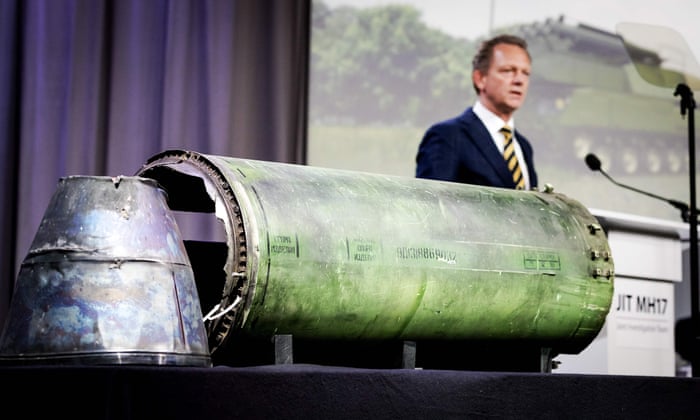Illusions Dissipated: Israeli Security, Russian Trajectory
"Russian Defense Minister Sergey Shoygu rejects the Israeli version of events, according to which the Israeli planes were already back over Haifa when the Ilyushin was shot down. The Russians argue that the radar picture showed an Israeli plane using the Ilyushin as a shield."
"A possible explanation for this, revealed by the Israeli daily Haaretz, is that the radar picture available to the Russians was not actual, but a product of Israel’s electronic warfare."
"Given that this will continue to be part of any future Israeli bombing, the advanced Russian missile defense systems will be rendered no longer marketable."
"Perhaps this is why the Russians, upon announcing that they will deliver S-300s to Syria, simultaneously announced their willingness to negotiate with the United States on this delivery, in order to avert any possible clashes with Israel and their ramifications."
Yigal Carmon, JNS org. the algemeiner
 |
| Russian President Vladimir Putin alongside Syrian dictator Bashar al-Assad during a December 2017 visit to Hmeymim air base in Latakia Province. Photo: Reuters/Mikhail Klimentyev. |
"Iran needs to leave Syria — that is not something new for you [Vladimir Putin]."
"We will continue to take strong action against any trickle [of fire] and any infiltration into Israel's airspace or territory."
"First, we will not tolerate the establishment of a military presence by Iran and its proxies anywhere in Syria — not close to the border and not far away from it."
"Second, we will demand that Syria, and the Syrian military, strictly uphold the 1974 Separation of Forces Agreement [a deal that set out a demilitarized zone along their frontier and limited the number of forces each side can deploy within 15 miles of the zone]."
Israeli Prime Minister Benjamin Netanyahu
| Russian President Vladimir Putin speaks with Israeli Prime Minister Benjamin Netanyahu during their meeting at the Kremlin in Moscow on July 11, 2018. (Yuri Kadobnov / AFP / Getty Images) |
The result of consultations between the two was an agreement to consult and coordinate airspace attacks, that the IDF would not undertake a mission over Syrian airspace without forewarning Russia, just as the U.S. and Russia have agreed on consultation over airspace both are engaged in, ostensibly for the permanent removal of terrorist groups located in parts of Syria. A testy situation where Washington supports the safety of rebel Syrian Sunni groups and Moscow takes the Syrian regime's line that such groups are themselves terrorists in line for extermination.
In Ukraine, the Russian military supplied ethnic Russian rebels with a Buk missile which was used to shoot down a Malaysian passenger jet flying over rebel-held Ukraine airspace leading to the deaths of hundreds of innocent people. Although there is ample evidence, Moscow continues to deny that anything remotely involving them or one of their missiles might have been involved. The loss of life of 283 passengers and 15 crew of Malaysian Airlines Flight 17 in 2014 doesn't appear to upset the Kremlin one bit.
 |
| Fred Westerbeke, the chief prosecutor, stands next to a part of the Buk missile fired at MH17. Photograph: AFP/Getty Images |
He may be Russia's president, but his military subordinates would have none of his generosity toward Israel, real or feigned. And it was the bellicose, thunderous accusations of the Russian military that had Israel not been in the airspace on a mission to prevent Syria from getting on with deliverables to Hezbollah, their confusion in hitting the wrong plane with S-200 missiles would never have occurred. Not that the Syrian military mismanaged the weapons they were provided with, but that Israel in defending itself provoked the disaster.
There is no feigning the situation in real-time now, however. Russian military fury has resulted in S-300s, more technically-advanced anti-aircraft missiles that Russia touts as an antidote to both Israeli and U.S. flights going undetected in airspace so vital to Russia's ongoing bombing campaign against Syrian Sunnis under the pretext of targeting Islamic State group, being provided to Syria. Once again, Russia supplying hugely destructive weapons to clumsy, untrained and inept users. In the interim, it will be Russian military technicians in charge of the S-300s until such time as it is felt their Syrian counterparts have received sufficient training.
It appears abundantly clear now that the feigned support of Israeli security by Vladimir Putin has come to an abrupt end. More to the point, perhaps, a situation now presents itself where, should an Israeli or an American warplane find it necessary to target a S-300 missile site manned by Russian technicians the danger of a serious escalation in hostilities leading to a widening conflict, or outright war looms as a possible outcome, advantaging no one. Russia has overstepped itself in its volatile fury.
At the very least, should Israeli warplanes demonstrate they can fly undetected in Syrian airspace despite the S-300s, that touted product becomes unsaleable by Russia, a cause of great embarrassment. A much preferable outcome than the former. And as long as Iranian military installations continue to pop up in Syrian territory those Israeli airstrikes will continue; the IDF is fairly confident the S-300s will present no impediment to their vital task of defending Israel's security from the designs of Iran, Syria and Hezbollah and the indifference of Russia.
Labels: Civil War, Conflict, Crisis Management, Intervention, Iran, Israel, Russia, Syria, U.S. Syrian Rebels
0 Comments:
Post a Comment
<< Home